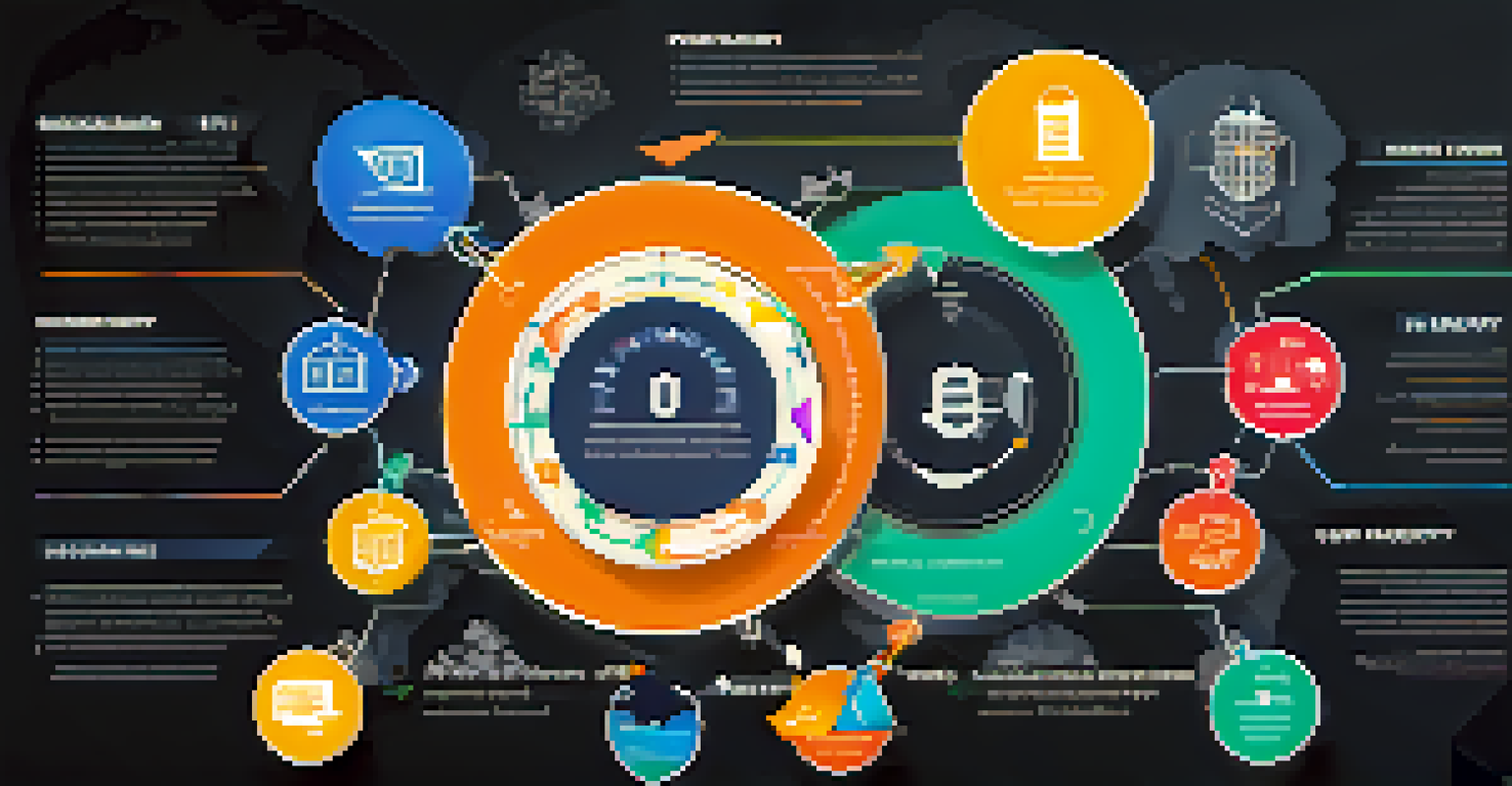Blockchain Solutions for Supply Chain Visibility Challenges

Understanding Supply Chain Visibility Challenges
Supply chain visibility is crucial for businesses to monitor the flow of goods and ensure timely deliveries. However, many companies struggle with a lack of transparency, leading to inefficiencies and increased costs. Issues such as data silos, manual processes, and the complexity of global logistics can hinder a clear view of operations.
Blockchain technology is not just a trend but a transformative force that can revolutionize the way we think about and manage supply chains.
For instance, imagine trying to trace a package's journey across multiple countries without a single source of truth. Without accurate and real-time information, businesses can face delays, miscommunication, and ultimately, unhappy customers. This is where innovative solutions are needed to enhance visibility.
Understanding these challenges is the first step towards finding effective solutions. With the right tools, organizations can streamline operations, reduce errors, and improve customer satisfaction by gaining the insights they need to make informed decisions.
What is Blockchain and How Does It Work?
Blockchain is a decentralized digital ledger that records transactions across multiple computers. This technology ensures that once information is added, it cannot be altered or deleted, providing a secure and transparent record. Think of it as a digital chain of blocks, where each block holds data that is linked to the previous one, forming an unbreakable chain.

In the context of supply chains, blockchain can track products from origin to destination. Each transaction or movement of goods is recorded on the blockchain, allowing all parties involved to see the same information in real-time. This transparency helps to eliminate disputes and build trust among stakeholders.
Supply Chain Visibility Challenges
Many businesses struggle with transparency in their supply chains, leading to inefficiencies and higher costs.
By utilizing blockchain technology, companies can create a more efficient and reliable supply chain. It enables better tracking of inventory, reduces fraud, and improves compliance with regulations, ultimately leading to a more robust operational framework.
Benefits of Blockchain for Supply Chain Visibility
One of the standout benefits of blockchain is its ability to enhance transparency across the supply chain. With all transactions recorded on a secure ledger, every participant can access up-to-date information about products and their journey. This level of visibility helps companies make better decisions and respond quickly to issues.
Transparency in the supply chain is not just a luxury; it's a necessity for building trust and ensuring consumer safety.
Additionally, blockchain reduces the risk of fraud. Since every transaction is verified and immutable, it becomes nearly impossible for anyone to alter the data without detection. This builds confidence among suppliers and consumers alike, knowing that the information is accurate and trustworthy.
Moreover, the increased automation from smart contracts—self-executing contracts with the terms directly written into code—can lead to significant cost savings. By automating processes, companies can reduce manual errors and enhance overall efficiency, making their operations more agile and responsive.
Real-World Applications of Blockchain in Supply Chains
Companies across various industries are already harnessing blockchain to improve their supply chains. For example, major retailers are using blockchain to track the origin of food products, ensuring safety and quality. This transparency is vital, especially when it comes to recalls or foodborne illnesses, allowing quick action to protect consumers.
Another example is in the luxury goods sector, where brands are employing blockchain to verify the authenticity of their products. By providing a transparent history of ownership, companies can combat counterfeiting and build trust with customers who are increasingly concerned about product integrity.
Blockchain Enhances Transparency
Blockchain technology provides a secure and transparent way to track products, improving trust among supply chain stakeholders.
These applications illustrate how blockchain can solve real-world problems by providing unparalleled visibility and security in supply chains. As more organizations embrace this technology, we can expect to see even greater innovation and efficiency in supply chain management.
Overcoming Barriers to Blockchain Adoption
Despite its numerous benefits, the adoption of blockchain in supply chains isn't without challenges. One major hurdle is the lack of understanding and familiarity with the technology among stakeholders. Companies often hesitate to invest in new systems that they don't fully grasp, which can stall progress.
Another barrier is the need for collaboration among various stakeholders in the supply chain. For blockchain to be effective, all parties must agree to use the same platform and share data openly. This requires a significant cultural shift and trust-building among competitors, which can take time.
Lastly, regulatory uncertainties can also impede adoption. Different regions may have varying laws regarding data sharing and privacy, leading to confusion and reluctance to implement blockchain solutions. Addressing these barriers is essential for realizing the full potential of blockchain in enhancing supply chain visibility.
The Future of Blockchain in Supply Chain Management
As technology continues to evolve, the future of blockchain in supply chain management looks promising. With ongoing advancements, we can expect to see more user-friendly platforms that simplify integration and usage. This will likely encourage more companies to adopt blockchain and reap its benefits.
Additionally, as awareness grows, more organizations will recognize the importance of transparency and traceability. This shift in mindset will drive demand for blockchain solutions, leading to increased investment in this technology across various industries.
Future of Supply Chains with Blockchain
The ongoing evolution of blockchain technology promises greater efficiency and security in supply chain management.
Ultimately, the future of supply chains is likely to be more connected, efficient, and secure, thanks to blockchain. As businesses leverage this technology, they can unlock new levels of visibility and operational excellence that were previously unattainable.
Conclusion: Embracing Blockchain for Better Supply Chains
In conclusion, blockchain technology presents a powerful solution to the visibility challenges faced by supply chains today. By providing a secure and transparent way to track products and transactions, it enables organizations to make more informed decisions and enhance collaboration among stakeholders. This ultimately leads to improved efficiency and customer satisfaction.
While there are challenges to overcome, the potential benefits far outweigh the hurdles. Companies that embrace blockchain can position themselves as leaders in their industries, setting new standards for transparency and accountability in supply chain management.

As we look to the future, it's clear that blockchain is not just a trend but a transformative force that can revolutionize the way we think about and manage supply chains. Embracing this technology is not just an option—it's becoming a necessity for success in a rapidly changing marketplace.